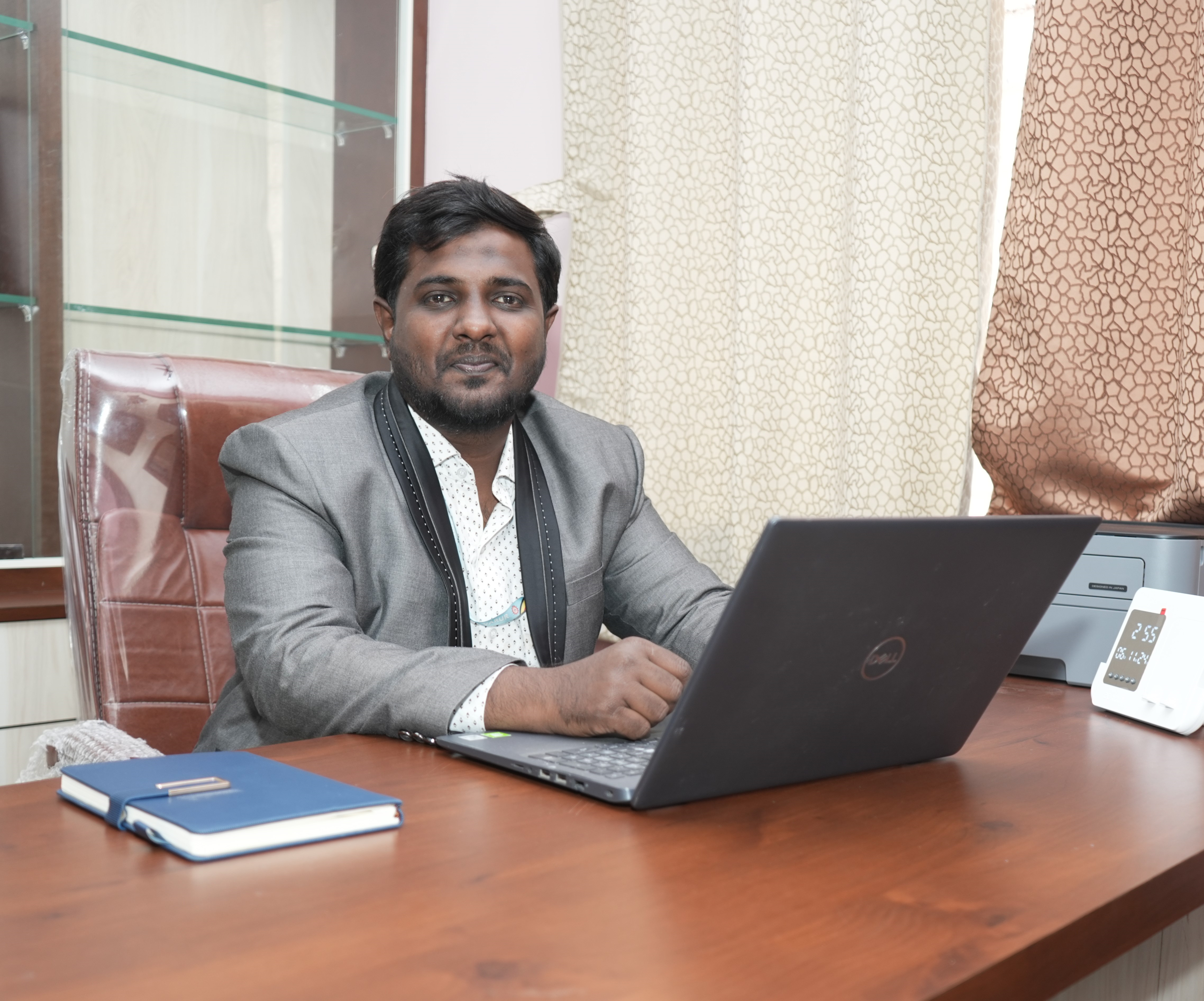- Home
-
About us
Want to change the world? At AGM we’re doing just that. When you join the AGM community, you’re part of an institution that shifts the global conversation every single day.
Read more - Academics
- Admissions
- Placement
- Facilities
- Life@AGM
- Contact us
- Navagrah Varur Hubli Karnatka Dharwad.
- Phone:+9194810 87999
- CET Code: E-199
- COMEDK Code: E-208
- Approved By AICTE
- Affiliated to VTU
Computer Science and Engineering(Artificial Intelligence and Machine Learning)
About Department
Welcome to the Department of Computer Science & Engineering(Artificial Intelligence and Machine Learning). The Department was established in the year 2023 and offers undergraduate program (B.E.) in Computer Science & Engineering with an intake of 30. The department is bound to produce not just skilled engineers but citizens who are responsible towards society. We are a team of highly qualified, experienced & dedicated faculties. Department has sufficient number of Well-equipped laboratories, class rooms & library for imparting quality education.
Our Vision
"To emerge as a center of excellence in Artificial Intelligence and Machine Learning education, fostering innovation, research, and ethical practices to empower students to shape the future through cutting-edge technologies and impactful solutions."
Our Mission
*To deliver comprehensive and Industry-aligned AIML education through experiential learning, advanced curriculum, and state-of-the-art infrastructure. *To promote a culture of creativity, critical thinking, and research, enabling students to contribute novel solutions to real-world problems using AIML technologies.
HOD Message

Mr. Irshad Ahmad Gorikhan
Head
Department of CSE(AIML)
We are thrilled to announce the establishment of our new (Artificial Intelligence and Machine
Learning) Department at A.G.M Rural College of Engineering and Technology. As we continue to
evolve in the dynamic landscape of technology, embracing AI and ML becomes not just a necessity
but a strategic imperative for our growth and competitiveness by keeping this vision our distinct
leader Director Sandeep Kaytanavar added feathers to cap by starting AIML Department.
.
In the AIML Department, we believe in learning by doing. Our state-of-the-art labs and resources provide the platform to experiment, innovate, and turn your ideas into reality. We encourage to question, explore, and, most importantly, to never stop learning.
Program Outcomes(POs):
PO1: Engineering knowledge: Apply the knowledge of mathematics, science, engineering fundamentals, and an engineering specialization to the solution of complex engineering problems.
PO2: Problem analysis: Identify, formulate, review research literature, and analyze complex engineering problems reaching substantiated conclusions using first principles of mathematics, natural sciences, and engineering sciences
PO3: Design/development of solutions: Design solutions for complex engineering problems and design system components or processes that meet the specified needs with appropriate consideration for the public health and safety, and the cultural, societal, and environmental considerations.
PO4: Conduct investigations of complex problems: Use research-based knowledge and research methods including design of experiments, analysis and interpretation of data, and synthesis of the information to provide valid conclusions.
PO5: Modern tool usage: Create, select, and apply appropriate techniques, resources, and modern engineering and IT tools including prediction and modeling to complex engineering activities with an understanding of the limitations
PO6: The engineer and society: Apply reasoning informed by the contextual knowledge to assess societal, health, safety, legal and cultural issues and the consequent responsibilities relevant to the professional engineering practice
PO7: Environment and sustainability: Understand the impact of the professional engineering solutions in societal and environmental contexts, and demonstrate the knowledge of, and need for sustainable development.
PO8: Ethics: Apply ethical principles and commit to professional ethics and responsibilities and norms of the engineering practice.
PO9: Individual and team work: Function effectively as an individual, and as a member or leader in diverse teams, and in multidisciplinary settings.
PO10: Communication: Communicate effectively on complex engineering activities with the engineering community and with society at large, such as, being able to comprehend and write effective reports and design documentation, make effective presentations, and give and receive clear instructions.
PO11: Project management and finance: Demonstrate knowledge and understanding of the engineering and management principles and apply these to one’s own work, as a member and leader in a team, to manage projects and in multidisciplinary environments
PO12: Life-long learning: Recognize the need for, and have the preparation and ability to engage in independent and life-long learning in the broadest context of technological change.
PSO1: Ability to apply knowledge and techniques in domains such as Python, Data Structures, Database Management Systems, and Artificial Neural Networks.
PSO2: Ability to analyze multidisciplinary, computationally intensive problems and develop optimized solutions using modern Machine Learning tools and techniques.
-
Course Outcomes
| Name | Qualification | Designation | Experience |
|---|---|---|---|
| Mr. Irshad Ahmed Gorikhan | B.E M.Tech | HOD & Assistant Professor | 12 |
| Dr. Sachin Patil | B.E M.Tech Ph.D | Associate Professor | 15 |
| Mr. Tabrezkhan Pathan | B.E M.Tech | Assistant Professor | 10 |
| Mrs. Harsha Aladi | B.E M.Tech | Assistant Professor | 03 |
| Mrs. Sushma S | B.E M.Tech | Assistant Professor | 02 |
| Supporting Staff | |||
| Mr. Rahul K | B.E | Programmer | 02 |
| Mr. Kumarswamy Hiremath | ITI | Asst. Instructor | 01 |
-
Placced Student Details
What we have
Scheme and Syllabus
Enquiry Form

Courses Offered
Quick Links
HELP & SUPPORT
Get In Touch
Address: NavagrahaTeerth,NH4-Raod Varur,Hubballi,Karnataka-581207
Phone: +(91)94810 87999
Email: principal@agmrcet.ac.in

















